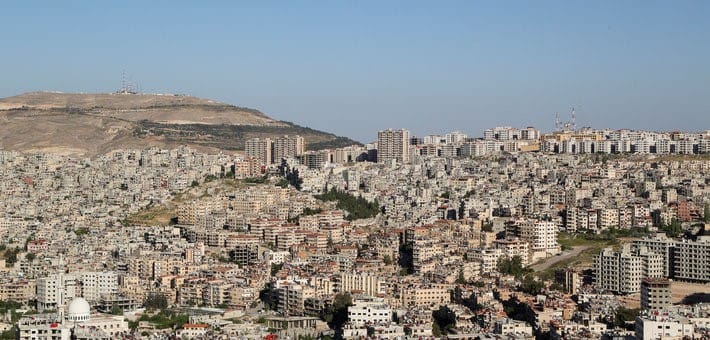Butchery in Damascus - How the Apartheid state heaps agony on Syria

By Clayton Barrington-Russell, BA Arabic and International Relations
Israel has yet again demonstrated its perpetual disregard for human life as the recent onslaught came a mere week after one of the most deadly natural disasters in Syria’s history.
The early morning of 19 February brought a downpour of Israeli rockets on Kfar Sousa, a leafy suburb in the Syrian capital. According to the Syrian Observatory of Human Rights, the strikes resulted in 15 deaths, amongst them civilians.
It is claimed that the latest Israeli infringement on Syrian territory targeted officials living in the neighbourhood, some of whom are allied with or part of Iranian forces on the ground. Although it is no secret that Iran does indeed flex its military muscles within Syrian borders, neither Syrian nor Iranian military forces are currently in a position to defend Damascus from such aggression. The war is not over, Turkish incursions in the North and the long process of rebuilding are hindering national security. This means the latest bombings are likely to go without reprisal. Of course, it is the Syrian people who are paying the price.
It is clear that respecting international principles of sovereignty is of minimal relevance to Prime Minister Benjamin Netanyahu and his increasingly fascist cabinet. The Syrian Ministry of Defence claims that these recent strikes came from a military base in the Golan Heights, a plateau in Southern Syria which has been under Israeli occupation since 1967.
Of course, this is not the first time Israel has directly attacked Syrian sovereign territory, having consistently conducted bombings, assassinations and missile strikes aimed at destabilising the war-torn country. For the past two decades, Israeli foreign policy towards Damascus and its inhabitants has shifted to one of unapologetic loathing. In 2017, Mossad chief Yossi Cohen begged the Trump administration to oppose a ceasefire in Southwestern Syria, whilst the then-Defence Minister Avigdor Liberman maintained that ‘the rebels are not our friends, they are all versions of Al-Qaeda.’
“For those waiting to return, this prolonged threat of bloodshed at the hands of yet another foreign party is salt in a tortuously raw wound.”
Therefore, it does not come as a surprise that this latest surge of indiscriminate bombings has put many Syrians in an extremely uneasy position – both at home and abroad. ‘Of course, I miss my family there,’ says Mohammad, a Syrian shopkeeper from North Damascus. Speaking from Amman, Jordan, he continues, ‘I will return, God willing if I am able to. But for me now it is impossible, as the bombing and the war continue. There is no country left.’
These words echo those of millions of Syrian nationals in exile. For those waiting to return, this prolonged threat of bloodshed at the hands of yet another foreign party is salt in a tortuously raw wound.
So what next? It is without doubt that public resentment towards Israel will heighten, despite many Arab governments’ adverse policies of normalisation with the Apartheid state. However, what may not be clear is how to bring this remorseless government to justice for its uncompromising antipathy towards the Arab people.
Photo Caption: View of South Damascus (Credit: Yamam al-Shaar, Reuters).




